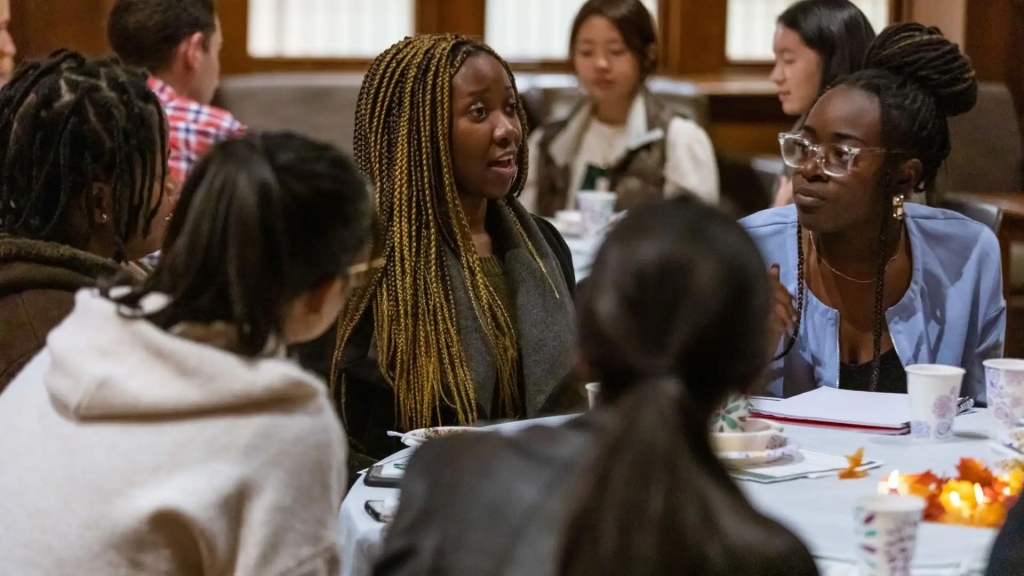History & Timeline

Dialogue Project History
The hallmark of a liberal arts education at Dartmouth is the ability to develop critical thinking, listening, and speaking skills that enable students to engage in respectful, thoughtful, and evidence-based deliberations on the most pressing issues of our times. Generations of Dartmouth graduates have utilized these skills to become leaders in their professions and communities.
In recent years, the erosion of respectful dialogue on the world stage has stalled solutions to urgent problems and, at worst, prompted hatred and violence. Success in solving the most challenging problems of our time demands the ability to take part in productive dialogue.
Dean Elizabeth Smith initiated conversations with faculty about the Dialogue Project in 2020, and worked closely with co-founder Kristi Clemens and the Steering Committee to articulate its mission and values.
In her inaugural address, President Sian Leah Beilock emphasized her commitment to mental health and fostering dialogue across differences—to creating a campus “where every member of our community not only feels comfortable expressing unpopular views, but in questioning others who hold views they disagree with,” and where Dartmouth’s “diversity of thoughts and lived experience shine through.”
Launched in early 2024 as a cornerstone of President Beilock’s Dartmouth Dialogues initiative, the Dialogue Project begins with an initial focus on the undergraduate experience.
More than $3 million has been contributed in private gifts to support the Dialogue Project from alumni, friends and the Casque & Gauntlet Trust, an alumni organization dedicated to fostering a strong community based on incorporating divergent views and shared values.
Timeline
The Dialogue Project launches with a focus on the undergraduate experience, and future offerings planned for faculty and staff. Among 2023-24 priorities, methodology will be explored that will allow undergraduate students to memorialize their participation in Dialogue Project workshops and leadership opportunities. Additionally, the Steering Committee will assess potential funding opportunities for students interesting in leading dialogue skill-building initiatives.
By the end of our first year, we will be ready to infuse the skill-building elements of the Dialogue Project’s priorities into campus culture.
It is critically important to understand the impact of dialogue-building programs on the campus community. The Steering Committee will engage in continuous assessment and improvement of the Dialogue Project’s priorities, strategies, and programs. We will know we have been successful when we routinely observe our community:
- Effectively engaging with difference to make a difference
- Demonstrating increased resilience to adversity
- Displaying empathy, compassion, and patience with each other
- Articulating well-reasoned arguments in support of a wide range of viewpoints
- Employing media criticism skills in analyzing mis- and disinformation
- Solving complex interpersonal problems without reliance on college policies as a starting point
- Engaging in enthusiastic debate and responsible discourse